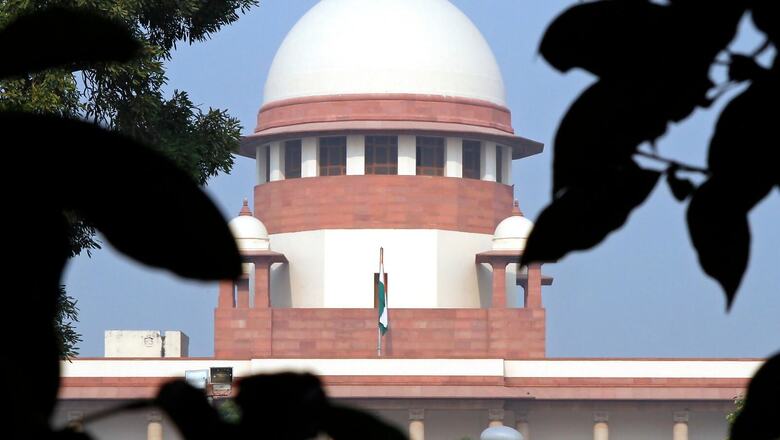
views
The Union government on Monday told the Supreme Court that it has decided to re-examine and reconsider provisions of sedition law in the country, a departure from the position it took in court last week.
Union Law Minister Kiren Rijiju told news agency ANI that the change in stance came after Prime Minister Narendra Modi’s instructions to re-evaluate the necessity of the colonial law in the present times. The PM urged to remove the obsolete law, Rijiju said.
The Centre also told the SC that reviewing and repealing old laws is an ongoing process and that the Government of India has already scrapped 1,500 laws since 2014-15.
The Centre requested the Supreme Court to not take up the sedition case until the exercise of reconsideration of Section 124A is undertaken by the Government of India before a Constitutionally permitted forum.
The government reportedly submitted an affidavit in the Supreme Court in connection with a slew of petitions filed by journalists, activists and political leaders challenging the constitutional validity of Section 124A of the Indian Penal Code which criminalises sedition.
PM Modi has asked to re-examine and reconsider the provision of sedition law. PM urged to remove obsolete sedition law: Union Law Minister Kiren Rijiju to ANI(file pic) pic.twitter.com/gYl8x61GO9
— ANI (@ANI) May 9, 2022
According to a report in Live Law, the Centre submitted in the affidavit that there exist divergent views on the issue in the public domain by jurists, academicians, intellectuals and citizens in the country.
The affidavit further reads that the government intends to work towards shedding the ‘colonial baggage’ at a time when the nation is gearing up to mark 75 years of Independence.
CHANGE IN STANCE
The statement marks a U-turn from the government’s defence of sedition laws in court last Saturday. The Centre had then defended the penal law on sedition and the 1962 verdict of a constitution bench upholding its validity. It had said that the laws have withstood “the test of time” about six decades and the instances of its abuse would never be a justification of reconsideration.
A bench of three judges comprising Chief Justice NV Ramana and Justices Surya Kant and Hima Kohli had on May 5 said it would hear arguments on whether the pleas challenging the colonial-era penal law on sedition can be referred to a larger bench for reconsidering the 1962 verdict of a five-judge constitution bench in the Kedar Nath Singh case.
The top court, in 1962, had upheld the validity of the sedition law while attempting to restrict its scope for misuse. It had held that unless accompanied by incitement or a call for violence, the criticism of the government cannot be construed as a seditious offence.
FEAR OF MISUSE
The provision for sedition laws has been under intense public scrutiny recently for its alleged misuse to settle political scores by various governments which had led the CJI to ask if the colonial-era law, which was used to persecute freedom fighters, was still needed after 75 years of Independence.
Concerned over the alleged misuse of the penal law on sedition, the top court in July last year had asked the Centre why it was not repealing the provision used by the British to silence people like Mahatma Gandhi to suppress the freedom movement.
Agreeing to examine the pleas filed by the Editors Guild of India and former Major General SG Vombatkere, the apex court had said its main concern was the “misuse of law” leading to the rising number of cases.
The non-bailable provision makes any speech or expression that brings or attempts to bring into hatred or contempt or excites or attempts to excite disaffection towards the government established by law in India a criminal offence punishable with a maximum sentence of life imprisonment.
Read all the Latest India News here

















Comments
0 comment